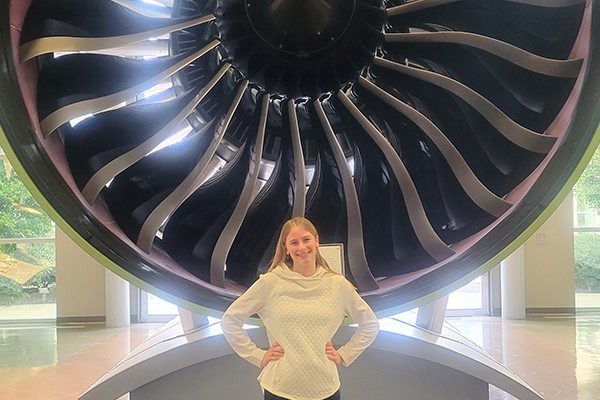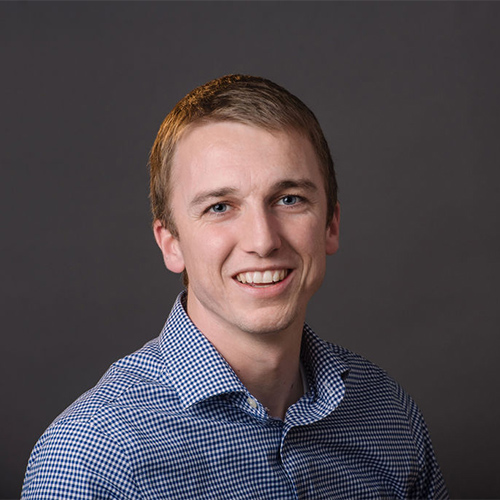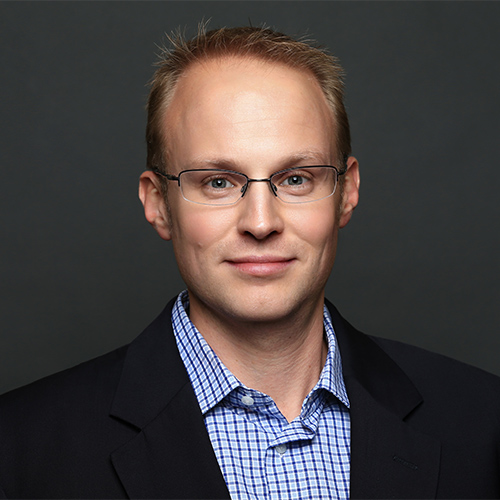Department of Mechanical and Aerospace Engineering Research
Research
Our faculty are comprehensive engineers and researchers who strengthen our community by combining invention and innovation to find innovative solutions to global challenges.


Congratulations to a team of mechanical engineering faculty — Megan Reissman, Tim Reissman and Allison Kinney — on their grant from the Ohio Department of Higher Education for their project "Assessing Clinical Translation of VR based Upper Extremity Rehabilitation after Spinal Cord Injury" which aims to help the lives of those with spinal cord injuries.

Congratulations to assistant professor Rydge Mulford, who was recently awarded $470,000 from NASA to develop heat rejection technology for CubeSat satellites, which will increase the percentage of successful missions.

Congratulations to associate professor Bob Lowe, who was recently awarded a $390,000 subaward from the S.C. Sea Grant Consortium to environmentally condition and mechanically test natural material alternatives to non-biodegradable plastics used in shoreline restoration, water quality protection and aquaculture. Lowe will collaborate with associate professor Scott Schneider.
Department Research Centers and Labs
The EMPOWER Lab focuses on research in posture, balance, neuro-muscular control, computational modeling and rehabilitation. The lab includes world-class equipment, including 3D motion cameras, wearable motion measurement sensors, a force-measuring treadmill, virtual reality systems, and a Caplex System, which provides a central platform to emulate wearable devices such as exoskeletons and prosthetics.
Directors: Allison Kinney, Meghan Reissman, Tim Reissman
Director: Sidaard Gunasekaran
The Water Tunnel Lab is a recent addition to the aero labs in the School of Engineering. The water tunnel offers a range of Reynolds numbers to test, which is far below what the Low-Speed Wind Tunnel Lab can offer. The water tunnel is predominantly a research facility established in collaboration with AFRL and fitted with equipment to design, develop, and test closed loop control system architectures to mitigate unsteady and gust loads on wings. The closed loop control system developed in the lab allows for lift tracking and control over a range of reduced frequencies and amplitudes, especially when subjected to external discrete and periodic disturbances. It also allows testing of many of the existing unsteady models for its robustness and accuracy.
Areas of Research
- Acoustics and dynamic systems
- Aircraft fuels and thermal management
- Biomechanics and computational biomechanics
- Computational fluid dynamics
- Design for environment and sustainable manufacturing
- Energy data analytics and community clean energy
- Experimental aerodynamics
- Geothermal and building energy
- Hypersonic aerodynamics and aerothermodynamics
- K-12 STEM education
- Mechanical systems and mechanical system design
- Mechanics and materials
- Robotics
Faculty Research and Expertise
Abdullah Al Amin is an assistant professor in the department of mechanical and aerospace engineering at the University of Dayton since fall 2023. Before joining the University of Dayton he was a postdoctoral scholar at Northwestern University and was a Research Engineer at Bridgestone America Technical Center. He received his Ph.D. from Case Western Reserve University, M.S. from the University of Akron, and B.S. from Bangladesh University of Engineering & Technology all in mechanical engineering. He leads the Smart Manufacturing Advancement and Logistics Technology (SMALT) Laboratory (https://smalt.dev). His research aims to advance the technologies of manufacturing by focusing on i. Hybrid Twin (real-time computational control) for the manufacturing process, ii. Reduced order and data-driven approach for accelerated computation utilizing high-performance-computation (HPC) environment, and iii. Computational Mechanics for process-structure-property predictions for metal additive manufacturing.
Learn more about Dr. Amin's research
Dr. Bigelow's primary research focus is in the area of biomechanics. She studies human movement to understand and improve how individuals walk, move and balance. A primary research interest is in the use of force plates and wearable sensors to measure and analyze an individual's postural control and determine if they are at likely risk of falling. Working closely with her collaborators in the department of physical therapy and health and sports science, she conducts transdisciplinary research to help individuals with neurological and other health conditions improve their movement and quality of life. Dr. Bigelow has a long-standing history engaging students in creating assistive devices and adaptive equipment as well as co-designing in tandem with individuals with disabilities, their families and their care teams. Dr. Bigelow's research also includes a focus on undergraduate research engagement, driven by her own work engaging undergraduate students in the Engineering Wellness through Biomechanics Lab.
Learn more about Dr. Bigelow's research
Dr. Hallinan's passions encompass three dimensions - sustainability, education and equity. Today, he is leveraging AI to advance each of these in synergistic ways. He is working on the development of an AI tool to optimize the design of circular economy villages in unpowered villages and communities around the world in order to overcome the biggest barrier to international development - namely investment. He has also co-developed an AI mentored personalized learning platform that empowers learners to learn on their own, whoever and wherever they are. He is using his technology to support learning in his classroom, learning in Dayton City schools, and in sub-Subaharan Africa, and, as well, in support of business training. Each of these represents active impact research.
Learn more about Dr. Hallinan's research
Dr. Mulford has always had a fascination with energy, a passion that continues into his research activities. As such, his projects focus on the intersection of optimization, energy and thermal management. Applications where he spends time include spacecraft thermal control, hypersonic vehicle power generation, solar panel yield optimization and building thermal control. His work has been funded by government agencies spanning from NASA to the Department of Defense.
Learn more about Dr. Mulford's research
Andrew Murray is a director of the Design of Innovative Machines Lab (DIMLab,) where the research specializes in machine design and kinematic synthesis theory. His work includes such diverse topics as continuum robot kinematics, performance tricycle design for FES-stimulated riders, shape-changing mechanisms with applications in variable geometry extrusion dies, novel devices that utilize strain-energy in automobiles, estimation and tracking of the human center of mass, and design of mechanical press linkages. He has long-standing collaborations with Dave Myszka and researchers at the Laboratoire d’Informatique, de Robotique et de Microélectronique in Montpellier, France. He won the highest teaching award offered by the University of Dayton in 2013. He was General Program Chair of the ASME International Design Engineering Technical Conferences in 2010 and has served four terms on the editorial board for the prestigious ASME Journal of Mechanisms and Robotics. He is an alumnus of Rose-Hulman Institute of Technology and the University of California, Irvine. He has been with the Department of Mechanical & Aerospace Engineering at the University of Dayton since 1997.
Learn more about Dr. Murray's research
Markus Peer Rumpfkeil is a professor in the Department of Mechanical and Aerospace Engineering and the aerospace program director. Before joining UD, Markus was a Post-doctoral Research Assistant at the University of Wyoming working with Professor Dimitri Mavriplis on efficient Hessian calculations and uncertainty analysis. He earned his Ph.D. from the University of Toronto Institute for Aerospace Studies (UTIAS) under the supervision of Professor David Zingg. He also obtained a Diplom (a combined B.Sc. and M.Sc.) in Physics from the Humboldt University of Berlin, Germany, with a minor in Mathematics. He wrote his master’s thesis at the Max-Planck Institute for Gravitational Physics. His research interest is the broad area of uncertainty quantification and design optimization applied to computational fluid dynamics (CFD) problems, in which he has published more than 80 peer reviewed journal and conference papers and has advised more than two dozen graduate students.
Learn more about Dr. Rumpfkeil's research
Professor Running works to motivate students inside and outside of the classroom to make a positive difference in the world. Running's technical scholarship is focused on hypersonic aerodynamics and aerothermodynamics with complementary interests in novel experimental surface-measurement techniques and facility design. These research endeavours seek to deliver answers to fundamental questions facing the hypersonic community and will lead to increased national security, space exploration and a revolutionized commercial-flight industry providing flights from LA to Tokyo in under 2 hours. Running is also active in pedagogical educational research, where he investigates predictive learning analytics and dynamic driven admissions criteria to better serve underprepared and underserved students.
Learn more about Dr. Running's research

